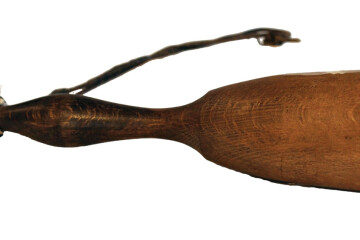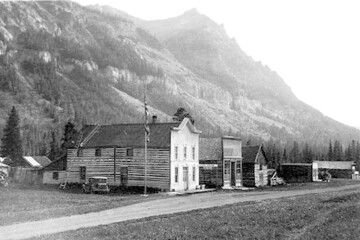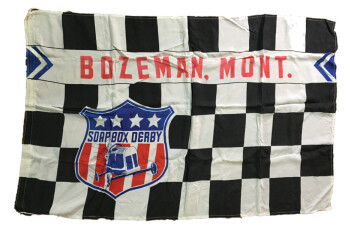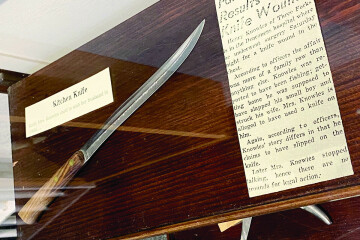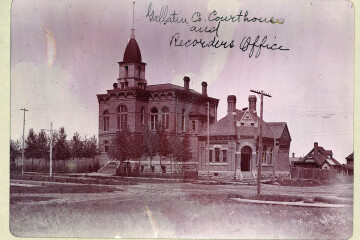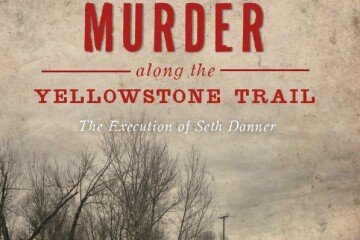Murder Along the Yellowstone Trail
The Execution of Seth Danner
Q. Now, if you will, continue and tell us in your own way, Mr. Smith, what events followed.
A. Well, then, the next morning we were supposed to meet there at 11 o’clock in the forenoon, but we were busy, and we met down there about—somewhere around one thirty. Mrs. Danner showed us where the bodies were. That was about quarter to two—1.45.
Q. Of what day?
A. The 18th day of June.
Q.. 1923?
A. 1923. So then I dug around—prodded around, and I stirred up a leg. Then I notified the Coroner.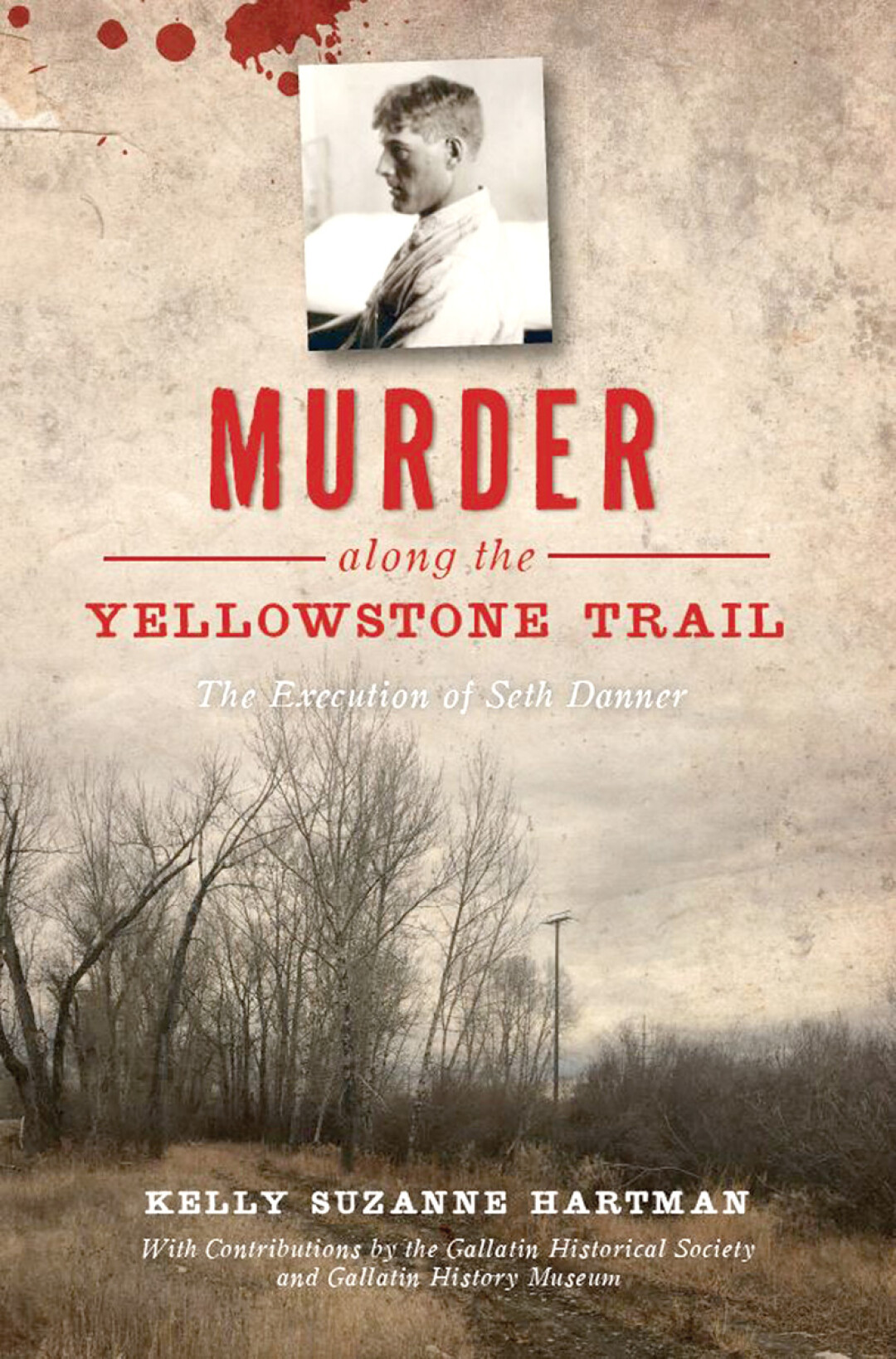
The sky was cloudy, a slight wind giving the 60-degree weather a bit of a chill, especially where the road breaks out into the open fields of Montana, June of 1923. From Bozeman, it’s a 30-mile drive to Three Forks down a dirt road known as the famous “Yellowstone Trail,” with the small towns of Belgrade, Central Park and D along the way.
It’s about 1:30 in the afternoon when a police car pulls off the road halfway between Belgrade and Manhattan, just a few thousand feet from Central Park. Another car containing a man in uniform and a young woman is already parked there, having come from the opposite direction in Three Forks. In the full group are Three Forks Deputy Sheriff Elmore, Gallatin County Sheriff Jim Smith, Deputy Howell and a Mrs. Iva Danner. The latter leads the men from the road through thick tangled underbrush less than 90 feet. They pick their way past disturbed ground, where the ghosts of two tents remain in the odd way grass comes back through trampled earth. Iva stops and points to a waterlogged depression in the ground, telling the men to “dig there.” Equipped with a stick, Smith begins to prod the indicated earth beneath a few feet of water. It’s uncertain whether he is skeptical of the woman’s story or not, although Elmore was certainly moved enough to give him a call. Nothing had been found the two times Elmore had been out there, once just the night before when he had asked Smith to meet him there. Suddenly something comes to the surface, and there is no mistaking what it is: a human leg bone.
Smith feels more confident now of having brought Seth Danner, Iva’s husband, to the Gallatin County Jail the night before. Then it had been as a precaution; now it seems it was a necessity. Smith moves the group away from the depression, sending Deputy Max Howell to Bozeman with Iva, where an official statement will be taken in the presence of an attorney, and to notify the coroner in Bozeman. When Coroner E.W. Harland arrives, the digging is commenced revealing the bodies of two unknown people lying side by side in a shallow grave. As the bodies make their way to Bozeman, they pass a Deputy and Iva who are headed back to her home in Three Forks after taking an official statement. Iva, seeing the conveyance, faints.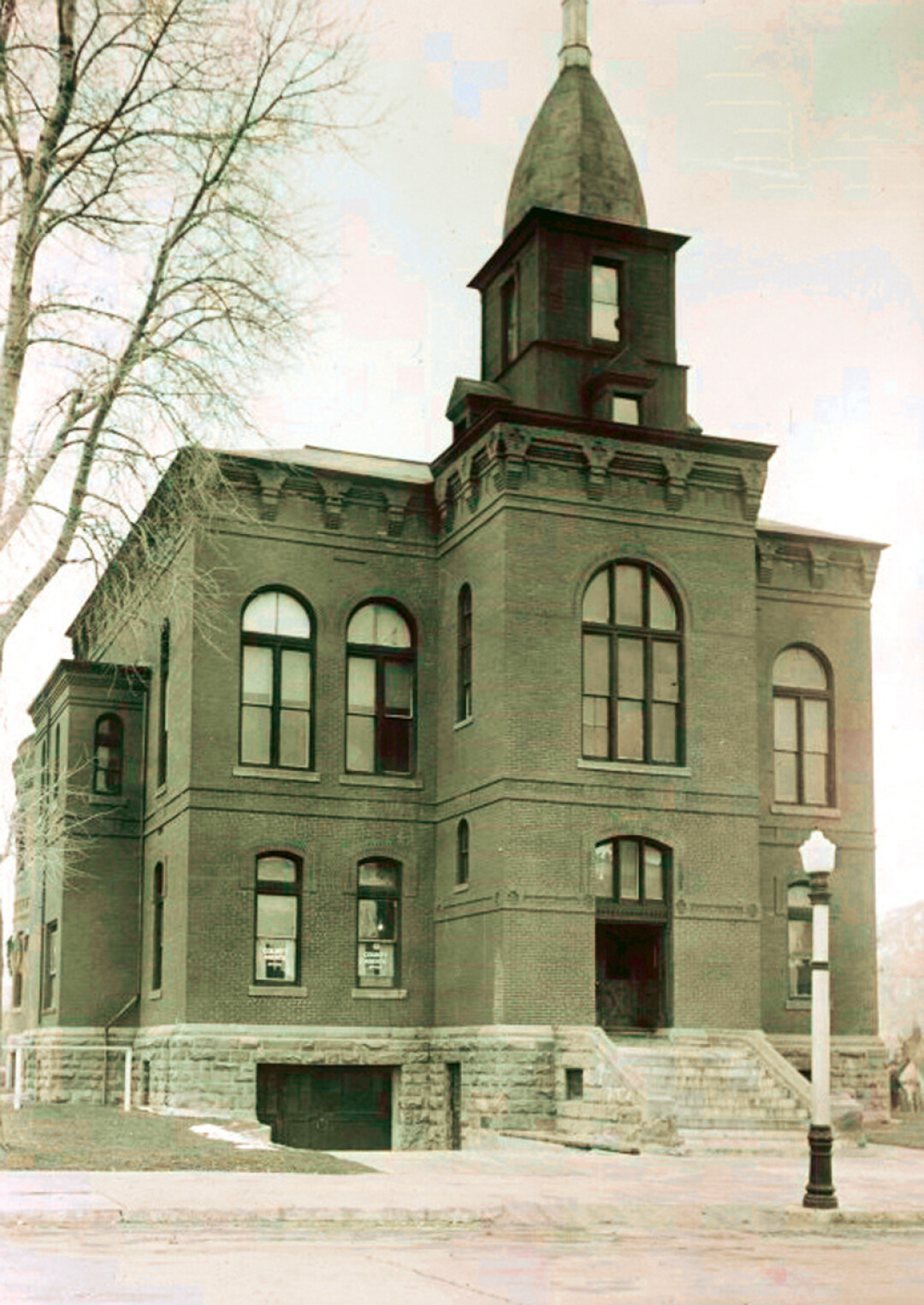
In less than 24 hours, her story is front page of the Bozeman Avant Courier: Conscience-Stricken Wife Tells of Husband’s Brutal Murders. Quickly, the obscure Danners become household names, dominating the press for the next year. Her story would appear in its near entirety four times prior to the trial, while Seth’s would only appear in small fragments. The headlines read like a cross between a detective novel and a soap opera:
Slew Married Pair with Camper’s Axe, Wife’s Accusation
Accused Slayer Says He Loves Wife Who Told
Danner Used Murder Axe as Household Tool
Slayer’s Wife Tells Why She Revealed Crime
Fear of Husband Not Conscience Led to Avowal
Mrs. Danner is Stepdaughter Accused Slayer
Nowhere was the story told in full; nowhere was Seth given the benefit of the doubt. He was “guilty” with the very first headline.
The Danner’s led an itinerant lifestyle, working between the fields at threshing season and town in the off seasons, Seth usually as a mechanic. The Danner’s consisted of Seth, his wife (who was also his cousin and stepdaughter) Iva, Seth’s daughter from a previous marriage Florence, and the couple’s three children Marvin, Donald and Della. In the fall of 1920, the Danner’s set out with another couple, John and Florence Sprouse on a road trip to Montana. Upon their arrival in October, the group found a camping spot to their liking near Central Park, about 20 miles from Bozeman. Here they stayed until mid-November, when the Danner’s pulled out of camp in separate cars and the Sprouses disappeared. From 1920 to 1923, Seth worked as a mechanic, and life was quiet until April 1923, when he was arrested for bootleg alcohol. Things became more serious when stolen goods were found at his home and his family was found in destitution. The latter saved him from 10 years in Deer Lodge, as Judge Law took pity on the man, allowing him off on probation so long as he got a job in Bozeman and provided for his family. Iva and the children remained in Three Forks. By June, Iva had worked up enough gumption to accuse her husband of having killed the Sprouses in the fall of 1920. When the bodies were discovered, the newspapers flocked to the story, making the Danners household names all across Montana.
First came the divorce trial, where Iva gained her independence from Seth and the children. In October, the murder trial began, culminating in four days of intrigue, harsh words and downright accusations. In the end, Seth would not be put on the stand. His story would only be told through a series of affidavits taken at the Gallatin County Jail. While Iva’s story concluded with robbery as the motive, Seth’s pointed toward infidelity, jealousy and accidental death in self-defense. According to Iva, Seth had killed John while out trapping, then had returned home and killed Florence later that evening to keep her quiet over the disappearance of her husband. Seth had then robbed the couple of their money and belongings and sold their car. However, the Sprouses didn’t have much for money; in fact, they had owed Seth some money. In Seth’s version of events, Florence had found her husband John and Iva in the brush together and in a jealous rage, killed her husband the next day before going after Iva with a gun. Iva had struck Florence down with an axe in self-defense. When just a few months after the trial Iva married “Jim the Baker,” a man who had spent considerable time at the Danner home, it seemed that Seth’s assertion of her infidelity rang true. In any case, Iva’s story was the one believed by the jury, and Seth was condemned to die by hanging for the murder of Florence Sprouse.
While the first execution date was averted due to an appeal, Seth found himself unable to escape the gallows in July of 1924, over a year since he had first been arrested for murder. 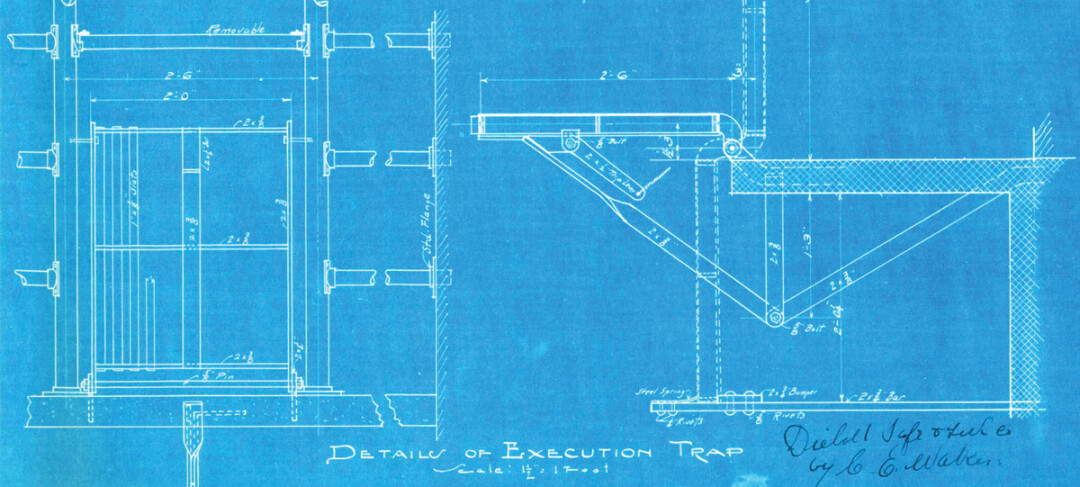
What may have passed through Seth’s head during that walk we will never know. Once, when talking to the guards, as he often did, Seth remarked that he wished they would “send him ‘over to the big house for life’ and then put him to work on the farm running one of the tractors at the prison, adding ‘I sure like to listen to the music of those tractors.’” Maybe he was thinking of his life, what it had amounted to, or maybe he was focused on a new home where he could hear the hum of tractors. Maybe he believed what he had told the newspapers just days before, that there was nothing more to live for in this world, and that he was ready to move on.
The priests read a Latin ritual during which Seth had held a small Crucifix, which he kissed before returning it to Father Leitham. It is unclear if the noose had been already loosely placed about his neck or not at this point, but it seems it was in place when Sheriff Smith asked the man whom he called Dan, “have you got anything to say?” To which Seth had responded with his last words on Earth:
I want to tell you people that I hold no malice against any man. I have made peace with my God and will go to Him knowing that I am fully prepared; and I would like to see each and every one of you people to follow my example. I have nothing more to say. Good bye, one and all.
The black hood was then adjusted, during which it was said that many of the spectators turned their heads away. According to the Courier: “After a moment of silence, the trap was sprung, and Danner had fallen more than six feet into eternity.”
Pick up a copy of “Murder Along the Yellowstone Trail: The Execution of Seth Danner” June 2020, published by The History Press. The Gallatin History Museum will be hosting a book signing and presentation with author and curator Kelly Hartman, July 10th at the Museum, the old jail where Seth was held and executed nearly 100 years ago.


